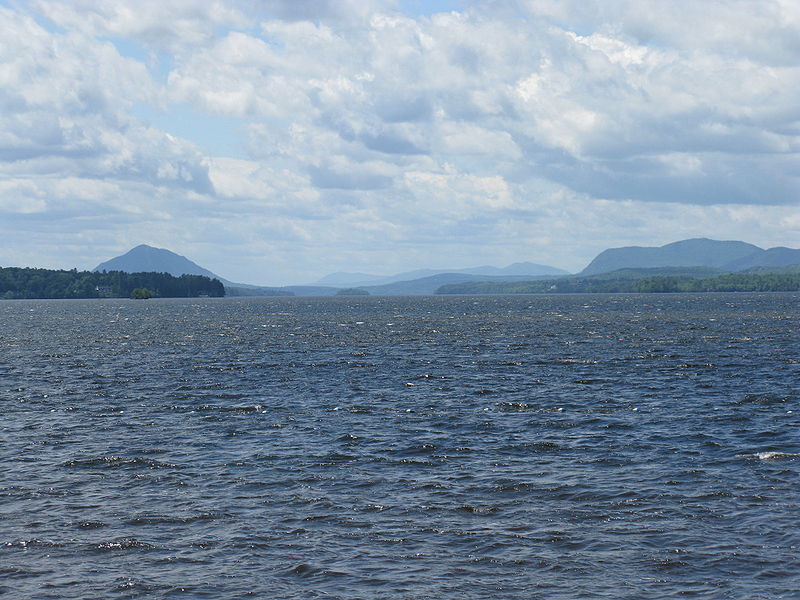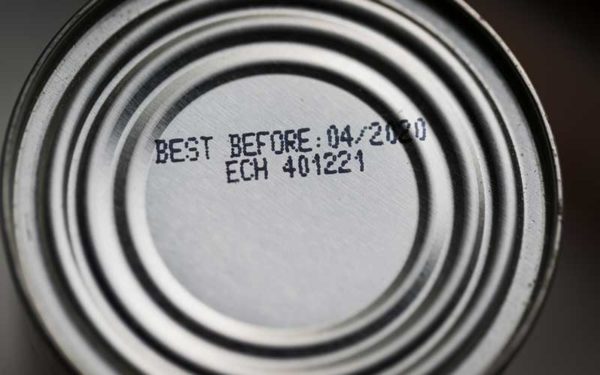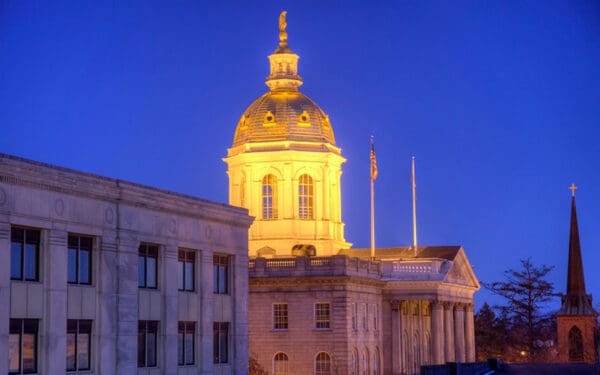
Lake Memphrémagog, a drinking water source for towns in Canada, is already contaminated because of the Coventry Landfill. Casella Waste wants to expand the landfill by 51 acres, which would only increase pollution. Photo: Jean-Philippe Boulet
The Coventry Landfill sits on over 600 acres in northern Vermont, and Casella Waste, the waste company that owns and operates it, wants to expand an additional 51 acres. This expansion is unnecessary and dangerous to the health of Vermonters.
We know that the landfill is already leaking pollution into the groundwater and emitting methane and other dangerous chemicals in the air. It is also contaminating Lake Memphrémagog, a drinking water source for towns in Canada. We don’t need Casella to bring 500,000 more tons of waste a year to the site for an additional 22 year. It’s already so tall people call it Mt. Casella.
Vermont doesn’t need this dangerous expansion to handle its trash. In fact, the state has been reducing its waste, diverting it to be recycled or composted instead of trucked away to a landfill.
Why accept the public health risks of expanding a landfill that the state doesn’t need?
Vermont Has the Most Progressive Recycling Laws in New England
In 2012, the Vermont Legislature passed a Universal Recycling Law, which banned recyclables from entering the landfill by 2015, leaf and yard waste by 2016, and will require haulers to collect food waste by 2020. This law has already reduced Vermont’s waste in its first three years. The state disposed of 5 percent less in 2015, and then 3 percent less again in 2016, than they did in 2014. If the state continues along that trajectory, in 10 years, Vermont’s disposal needs might be half of what they were in 2014.
These recycling laws – and the impact they are already having – are proof that Vermont doesn’t need a bigger landfill. More landfill capacity in Vermont will discourage full implementation of Zero Waste programs. Casella has already lobbied hard to push back the implementation of composting in Vermont.
A bigger landfill will also mean that Vermont ends up accepting a lot of waste from out of state.
Casella Wants the Expansion – Vermont Doesn’t Need It
Casella wants the landfill to stay open as long as possible for their own profit. They are paid between $95-120 for each ton of waste that is disposed at their facility. Make no mistake: If the expansion is permitted, they will fill it. The Coventry Landfill currently accepts out of state waste like sewage sludge, contaminated soil, and construction material from across New England.
As Vermont continues to reduce its waste, Casella will only accept more waste from the rest of the region of compensate. They state in their expansion application that they will increase their intake of out-of-state material, specifically to replace the food waste that Vermonters are composting instead of sending to the landfill.
More Waste Means More Contamination
Landfills are divided into cells lined with plastic and clay, and these liners inevitably rip, tear, and leak, releasing harmful chemicals into the surrounding land and water in the form of “leachate,” a toxic liquid created from decomposing waste. The Coventry Landfill is no exception. Groundwater near the landfill contains harmful pollution, including arsenic, benzene, and lead. Every new disposal cell Casella fills with waste increases the amount of leachate and the risk of ground and surface water contamination.
The leachate that is collected is sent to sewage/wastewater treatment plants, where many of the leachate contaminants end up in rivers or lakes via the sewer outflow pipes. More landfill acreage means more leachate and more pollution, period. The contaminated water from at least one of the sewer plants is discharged into Lake Memphrémagog, a drinking water source for over 160,000 Canadians. Because of this contamination alone, the expansion should be denied. Instead, the state keeps allowing Coventry to expand.
Join Conservation Law Foundation in Opposing This Unnecessary Expansion
Expanding the Coventry Landfill is bad on all counts – for Vermonters, for the environment, for the state’s Zero Waste programs, and for those who drink the water downstream. If you want to see the expansion denied, contact the Vermont Agency of Natural Resources. Comments can be sent to Jeff Bourdeau (jeff.bourdeau@vermont.gov), or use this form from the Toxics Action Center.



